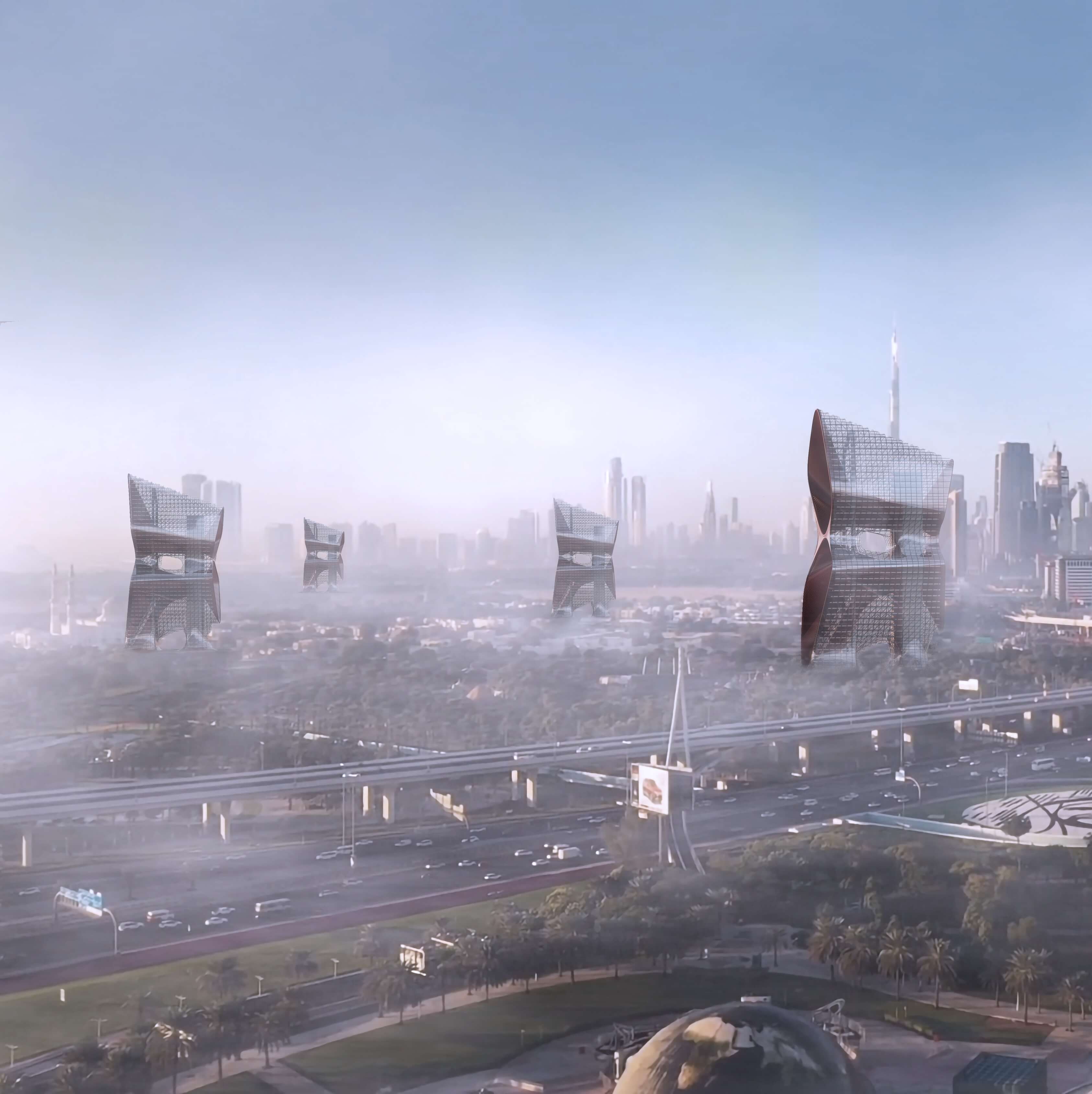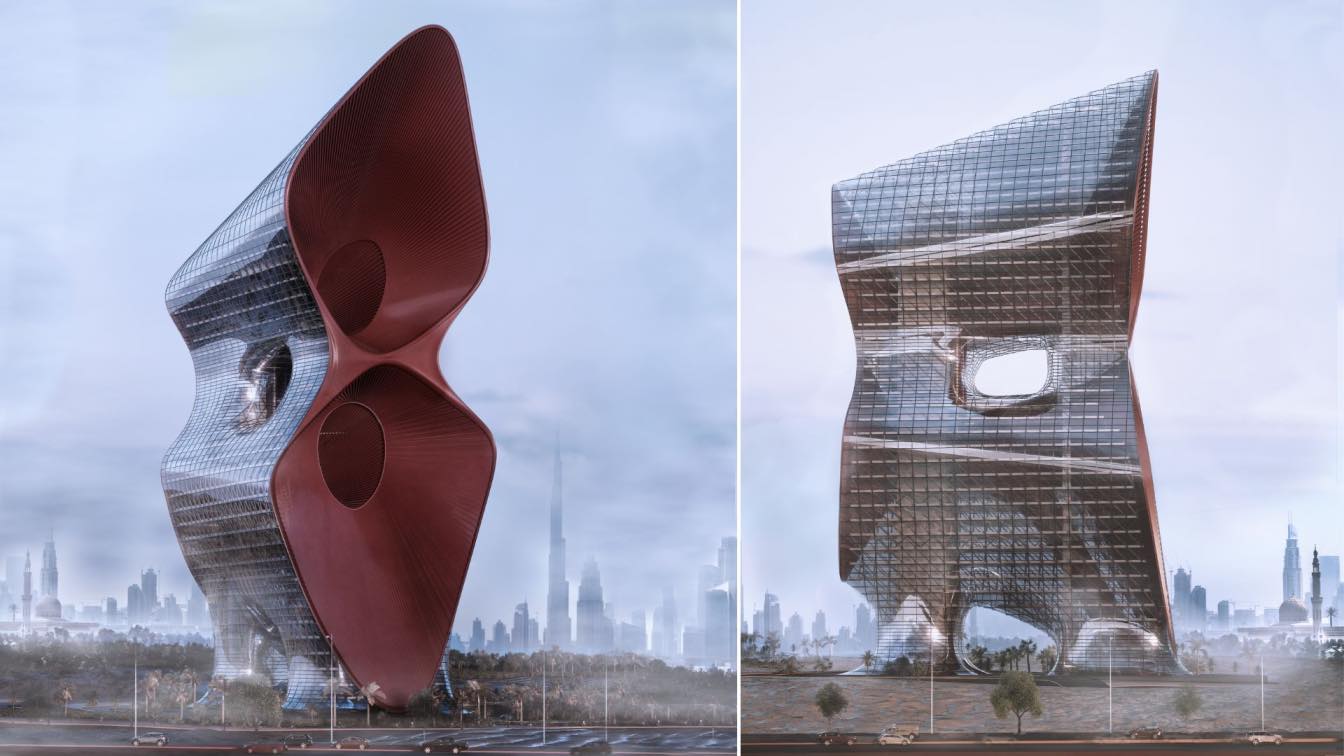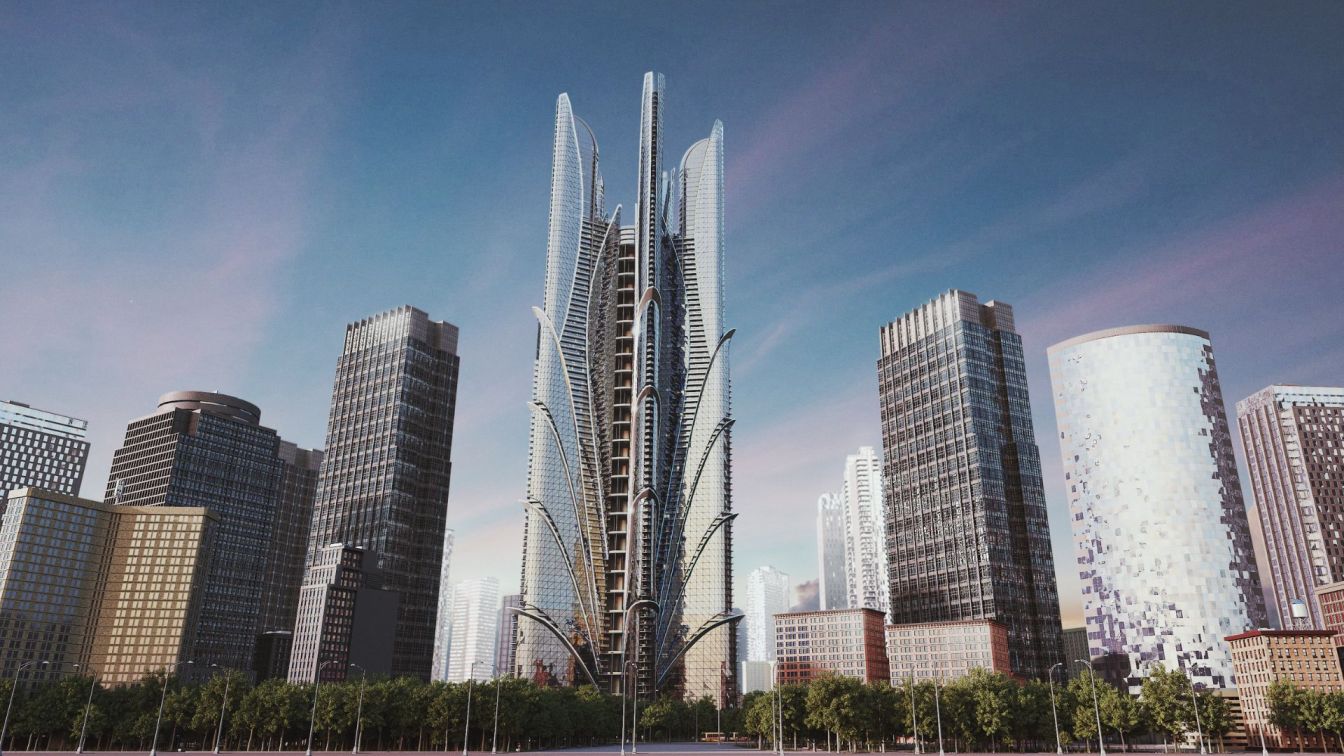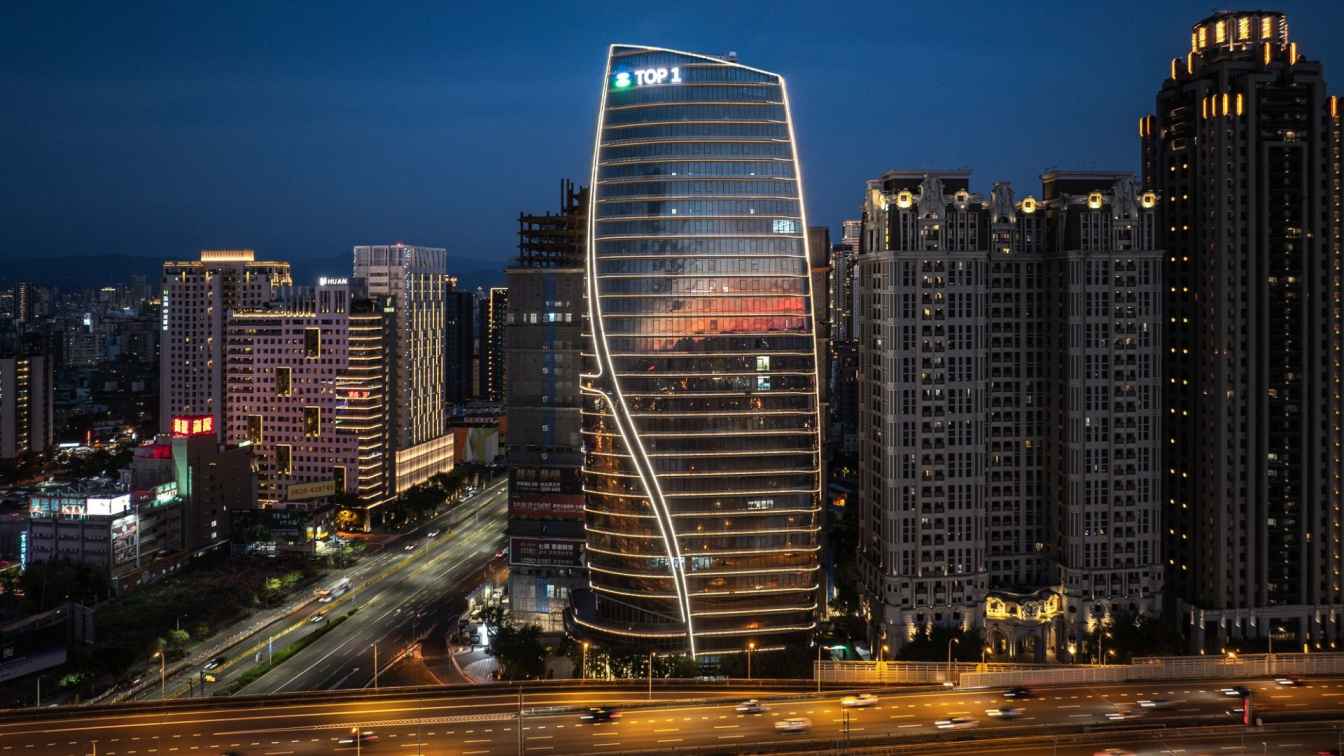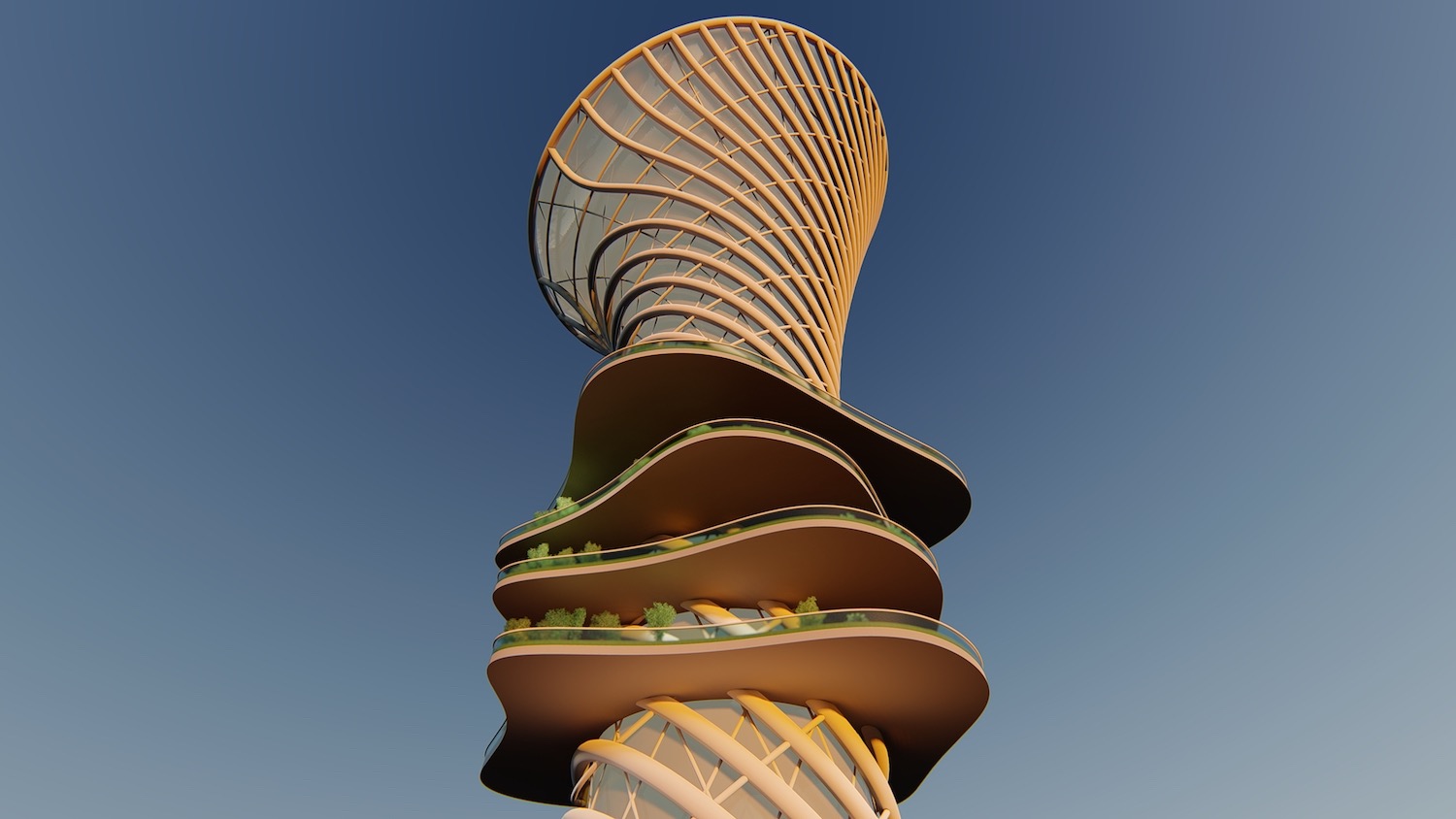Have you ever encountered sandstorms? If you have ever spent some time in Dubai or any other city in UAE, especially during spring and summer, you have probably witnessed its tropical desert climate and massive sandstorms. And you might know that when they occur, they slow down or, on larger scales, completely shut down the city’s ordinary rhythm. Besides this, it is a proven fact that sandstorms gradually cause respiratory problems and pollutes the air and water, which will end up destroying the natural habitat.
On the other hand, as you probably know, Dubai loves and encourages creative yet functioning ideas! And designing skyscrapers is one of the most popular types of architecture in Dubai So, at Kalbod Architecture Studio, we decided to study and channel this natural behavior of the desert lands via architecture and set ourselves the challenge of providing a suitable solution to the sandstorm in Dubai by integrating creativity and technology.
The design process of the Absorbent Sand Storm Skyscraper, the creative integration of structure, and facilities, along with a sustainable approach, will lead to the formation of an area that, in addition to improving the weather conditions of Dubai, will play a very vital role in reducing energy consumption, will become a research base to study and get to know these storms better to be able to provide better functioning solutions in the future.
According to the location of the Absorbent Sand Storm Skyscraper, and the high possibility of storms, extensive studies were done regarding this phenomenon before starting to design. To control this issue and make positive use of it. The glass structure slowly rises from the ground and covers the facilities that form the central part of the skyscraper, and the whole design process is inspired by its function. The Absorbent Sand Storm Skyscraper project consists of 25 towers on the Dubai main route; with the design idea to deal with the sand storms in Dubai, these towers have turned their form into an open embrace to absorb dust particles.
Studies showed that soil particles are electrically charged. Therefore, the main structure of the towers consists of two deep cavities to absorb soil particles via magnetism, removing the electrical charge from the particles. Sand particles enter the cavities and are attached to the smart panels inside the holes, which will open to a certain extent according to the storm’s intensity. Then to ensure that all particles are neutralized, all their electric charge is taken in two different stages. Due to the larger diameter of the soil particles at a lower height, the lower cavity has a larger opening.
In a sustainable approach, installing sand batteries in the tower's facilities is considered, which can store energy for several months and be used even in other regional buildings. More than one skyscraper is needed to control sandstorms. So, we have predicted the presence of 25 towers on our site, which will overlap and improve the function of each other. Our ultimate goal is to create a multi-functional area centered on scientific research, and each tower will be dedicated to a specific position. The zoning will include residential use and research institutes for physics, aerospace, technology, biology, and medicine.
